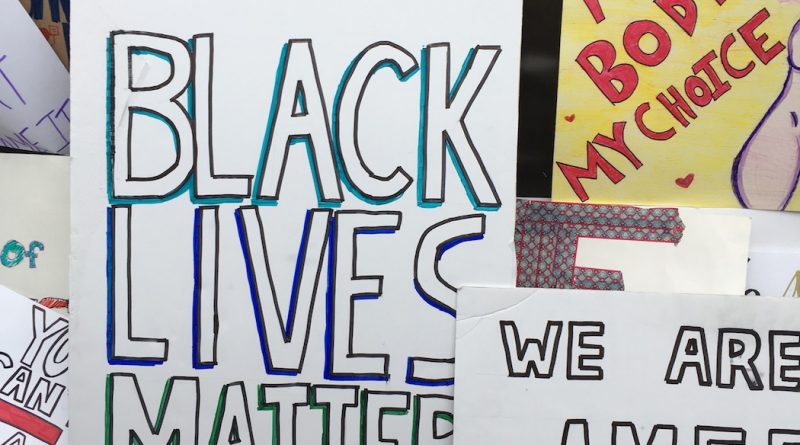For feminism, against reductionism: Flyers join Women’s March on Washington
By: Colleen McDaniel – Senior, Women and Gender Studies
Feminism is not the fight for abortion that many people believe it to be. Feminism is a colorful movement to ensure the equality of all genders despite the person’s identity, race, ability, creed, or socioeconomic status.
That encompasses a vast range of issues including race relations, Native American rights, access to health care, access to equal pay and job opportunities, and access to childcare, etc.
Reducing such a large movement down to the single issue of abortion is a gross misrepresentation of a long-lasting fight, and degrades and devalues the struggles of many women globally.
Reductionism is the practice of lessening the importance of the large array of issues that make up the movement for women’s equality down to one single issue: abortion. I’m not going to argue about abortion because, frankly, there are feminists who are anti-choice as well as feminists who are pro-choice.
So, here’s what happened: Once the sponsors of the Women’s March were announced, it came out that many of the organizations were pro-choice sponsors. Gloria Steinem, an honorary co-chair of the March and a scheduled speaker, was a lead activist in the fight for women’s access to safe birth control.
Cecile Richards, the president of Planned Parenthood, spoke representing an organization who provides many health care services for both women and men. Because of this, the University did not feel that, as a Catholic institution, they could any longer provide monetary support for our bus to this march. We were devastated.
While many people might say that this is an understandable reason for the University not to support us, I disagree. Supporting women’s equality does not mean picking a single issue. We all had our own reasons for marching.
This was the university’s chance to take a stand and say publicly that although they uphold an anti-abortion belief system, they still recognize the inequalities that women in America face today.
The good news is that we still went. Being the kind and supportive university I believe UD is, President Spina immediately called a meeting, inviting everyone involved in the march. At the meeting, he announced that an anonymous sponsor wanted to donate the funds to provide a bus to the Women’s March.
While I cannot begin to express our gratitude for our anonymous sponsor, and of course for President Spina’s dedication to UD students, I think I speak for my fellow marchers when I say this: the fight has just begun.
It was 8 p.m. on, Jan. 21, 2016. I just boarded a charter bus outside Union Station in Washington D.C. I was the last to get on, making sure we hadn’t left anyone behind. I turned first to my co-organizer, Katie Brossart, who was smiling and giggling, each burst of audible laughter filled with unfiltered sighs of relief.
I then looked up at our classmates and our community members who filled the inside of the bus, which somehow seemed bright even though nighttime surrounded us. Looking around, I can see that after having been faced with this dilemma, we are more driven than ever to act on campus.
We have realized that while there is a national fight, the best way to combat sexism is to lead the fight at home. At the Women’s March on Washington, we learned this lesson. It starts in our language, being conscious of the way we refer to all women. It starts in our perceptions of others, especially reflecting upon our own biases.
At the Women’s March on Washington, Angela Davis quoted Ella Baker by saying, “We who believe in freedom cannot rest until it comes.” We are galvanized. We are ready to start the feminist conversation on campus.
Photo courtesy of Julia Hall – Online Editor-in-Chief

